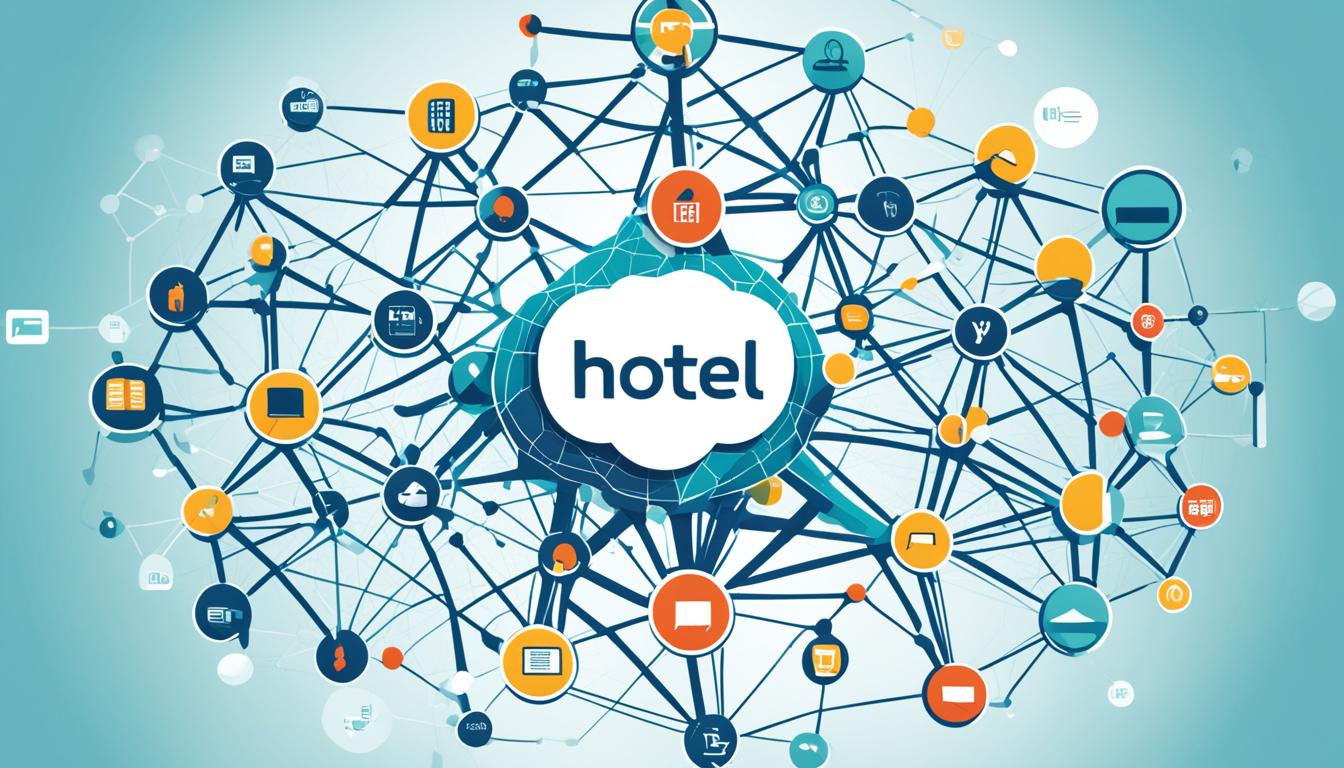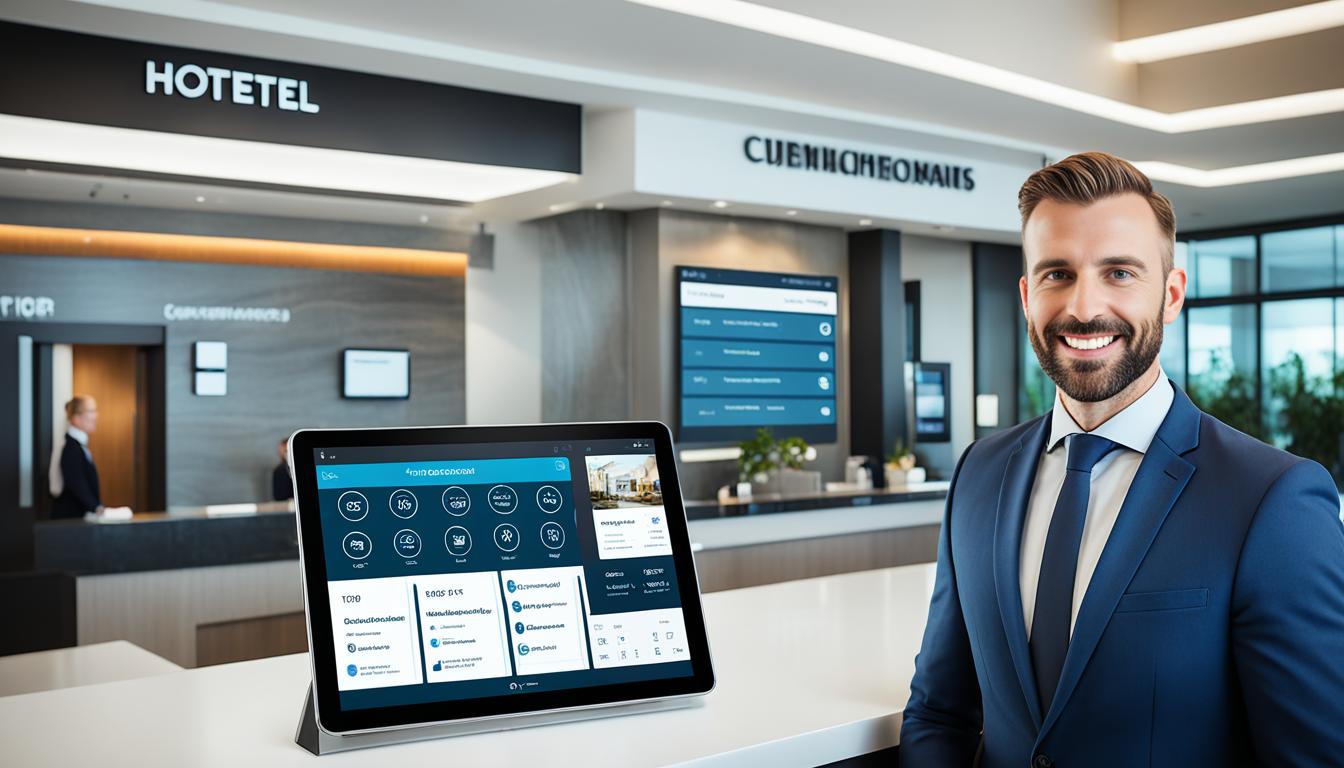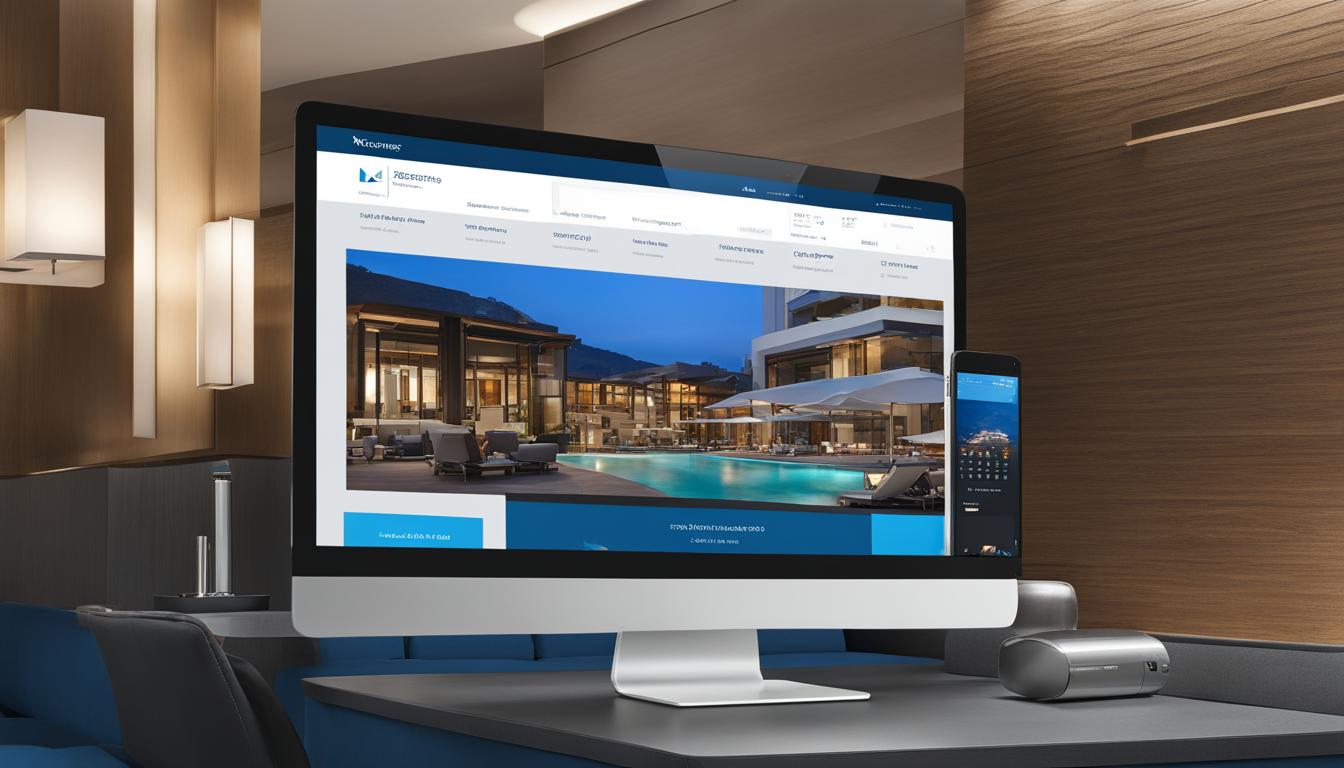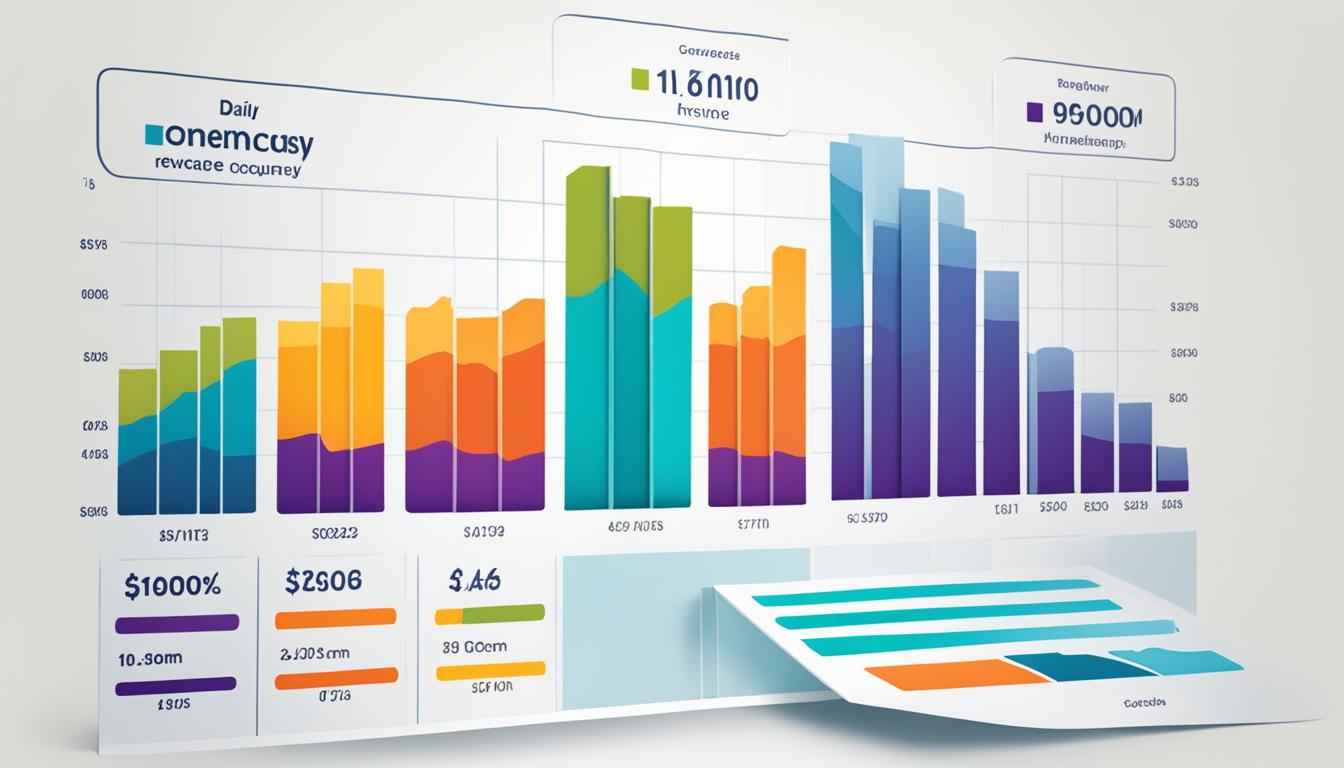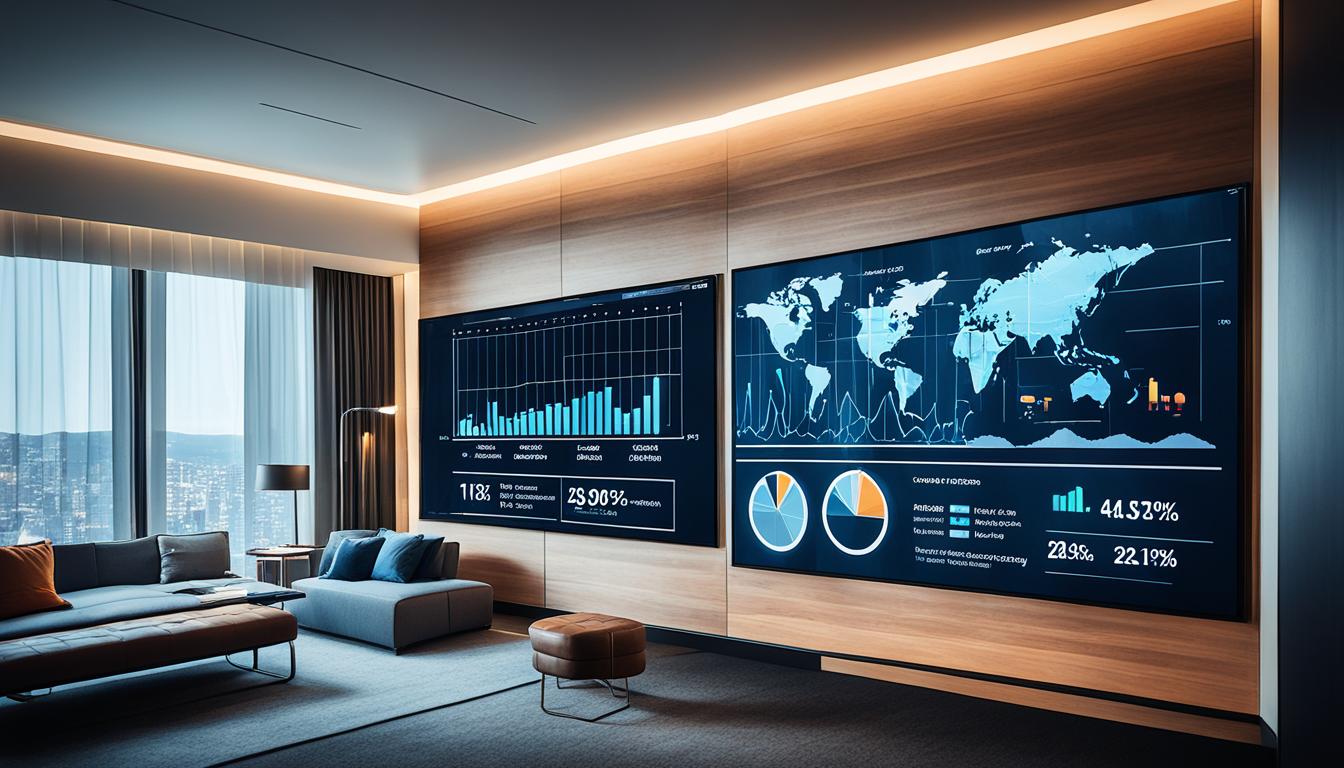Welcome to our guide on navigating the world of paid advertising and PPC campaigns for hotels! In today’s highly competitive online market, it’s crucial for hotels to have a strong online presence and effectively reach their target audience. Paid advertising, specifically PPC campaigns, can play a vital role in driving bookings and maximizing ROI for hotels.
In this guide, we will explore the basics of paid advertising and delve into the fundamental principles behind it. We will also provide practical tips and strategies for hotels to implement successful PPC campaigns, ensuring they get the most out of their advertising efforts. Additionally, we will introduce you to hotel website builder software by PlanetHMS, a powerful tool that can enhance your online marketing efforts and optimize your hotel’s online presence.
So, whether you’re new to paid advertising or looking to improve your existing campaigns, this guide is here to help you navigate the world of PPC campaigns and unleash their potential for your hotel. Let’s get started!
Understanding the Basics of Paid Advertising
In today’s digital landscape, paid advertising plays a crucial role in helping hotels drive bookings and reach their target audience effectively. One of the most popular and effective forms of paid advertising for hotels is PPC campaigns.
PPC, or Pay-Per-Click, campaigns allow hotels to display targeted ads on search engines and other online platforms. With PPC, hotels only pay for the ads when users click on them, making it a cost-effective method of advertising.
Understanding the basics of paid advertising and PPC campaigns is essential for hotels looking to maximize their online visibility and attract more guests.
The Key Components of a Successful PPC Campaign
A successful PPC campaign comprises several key components, each playing a significant role in its effectiveness. These components include:
Tips for Getting Started with Paid Advertising for Hotels
If you’re new to paid advertising and PPC campaigns, here are some tips to help you get started:
- Set Clear Goals: Define your objectives before starting a PPC campaign. Whether it’s increasing direct bookings or driving more traffic to your website, having clear goals will help you measure the success of your campaign.
- Research Your Competitors: Analyze what your competitors are doing in their PPC campaigns. Identify their strengths and weaknesses and find unique angles to set yourself apart.
- Optimize Your Website: Ensure your hotel website is optimized to maximize conversions. Improve page load times, create user-friendly navigation, and optimize your website for mobile devices.
- Monitor and Adjust: Continuously monitor the performance of your PPC campaigns and make necessary adjustments. Track key metrics such as click-through rates, conversion rates, and return on ad spend (ROAS) to optimize your campaigns.
- Test and Refine: Experiment with different ad variations, keywords, and targeting options to find what works best for your hotel. Regularly test and refine your campaigns to improve their effectiveness.
By understanding the basics of paid advertising and implementing effective PPC strategies, hotels can significantly increase their online visibility, drive bookings, and ultimately achieve higher returns on their marketing investments.
The Power of Hotel Website Builder Software by PlanetHMS
In today’s digital age, having a visually appealing and user-friendly website is essential for hotels to attract and engage potential guests. This is where hotel website builder software comes in, revolutionizing the way hotels create and manage their online presence. One such powerful software is offered by PlanetHMS, a leading provider of hospitality management solutions.
The hotel website builder software by PlanetHMS offers a range of features and benefits that can greatly enhance a hotel’s online presence. With its intuitive drag-and-drop interface, hotels can easily create stunning websites that showcase their unique offerings and amenities. The software provides a wide variety of templates and customization options, allowing hotels to tailor their website design to match their brand identity and attract their target audience.
But the benefits don’t stop at aesthetics. The hotel website builder software by PlanetHMS also incorporates powerful marketing and SEO capabilities, ensuring that hotels can optimize their website for maximum visibility and traffic. The software enables hotels to easily implement SEO best practices, such as meta tags, keyword optimization, and mobile responsiveness, to improve their search engine rankings and increase organic traffic.
Furthermore, the software seamlessly integrates with other digital marketing tools, such as email marketing platforms and social media channels, enabling hotels to streamline their online marketing efforts and engage with their audience across multiple platforms. This integration ensures consistency in brand messaging and allows hotels to effectively target and nurture potential guests throughout their online journey.
With the hotel website builder software by PlanetHMS, hotels can not only create visually stunning and user-friendly websites but also optimize them for search engines and implement effective digital marketing strategies. By leveraging the power of this software, hotels can boost their online presence, attract more potential guests, and ultimately drive bookings and revenue.
Implementing Effective PPC Campaigns for Hotels
In order to make the most of paid advertising, hotels need to implement effective PPC campaigns that drive targeted traffic to their websites and ultimately lead to bookings. Here are some practical strategies and tips to help hotels set up and execute successful PPC campaigns.
1. Define Your Goals and Budget:
Before diving into PPC advertising, hotels should clearly define their goals and allocate a budget. Whether the objective is to increase direct bookings, boost brand awareness, or target specific customer segments, having a well-defined goal will help shape the campaign strategy.
2. Identify Target Audience:
Understanding your target audience is crucial for running a successful PPC campaign. Conduct thorough market research to identify your ideal guests, including their demographics, preferences, and online behavior. This information will guide your campaign targeting options, allowing you to reach and engage potential customers effectively.
3. Select Relevant Keywords:
Choosing the right keywords is essential for PPC campaigns. Conduct keyword research to identify highly relevant and high-converting keywords related to your hotel and its offerings. Focus on long-tail keywords that capture specific search intents, ensuring your ads are shown to users actively seeking hotel accommodations.
4. Create Compelling Ad Copy:
Your ad copy plays a crucial role in attracting clicks and driving conversions. Craft compelling and persuasive ad headlines and descriptions that highlight your hotel’s unique selling points, such as location, amenities, and special offers. Ensure your ad copy aligns with the keywords you’re targeting to achieve higher click-through rates.
5. Develop Landing Pages:
A well-designed landing page specifically tailored to your PPC campaign plays a significant role in converting clicks into bookings. Create landing pages that are visually appealing, user-friendly, and optimized for conversions. Include essential details about your hotel, clear calls-to-action, and persuasive elements to encourage visitors to complete their bookings.
6. Monitor and Optimize:
Regularly monitor the performance of your PPC campaigns and make optimizations to maximize their effectiveness. Analyze key metrics such as click-through rates, conversion rates, and cost per conversion. Test different ad variations, landing page designs, and targeting options to constantly improve the campaign’s ROI.
By implementing these strategies and tips, hotels can create effective PPC campaigns that drive relevant traffic, increase bookings, and maximize the return on their paid advertising investment.
Conclusion
As we conclude our exploration of paid advertising and PPC campaigns for hotels, it is clear that these marketing strategies play a crucial role in driving bookings and maximizing ROI. Hotels that leverage paid advertising effectively can generate targeted traffic, increase brand exposure, and ultimately boost revenue.
By investing in PPC campaigns, hotels can reach potential guests at the right time and place, ensuring their properties stand out in a competitive market. The ability to target specific demographics, showcase unique amenities, and highlight special offers through paid ads enables hotels to engage with their target audience effectively.
To achieve success with paid advertising, it is important for hotels to adopt a comprehensive approach. This includes selecting the right keywords, designing compelling ad copy, optimizing landing pages, and regularly monitoring and adjusting campaigns for optimal results. By partnering with reputable platforms and utilizing powerful tools such as the hotel website builder software by PlanetHMS, hotels can unlock the full potential of their online marketing efforts.
As hotels continue to adapt to the evolving digital landscape, it is important to recognize the value of paid advertising and PPC campaigns. By embracing these strategies and leveraging the right tools and resources, hotels can stay ahead of the competition, attract more guests, and achieve long-term success in the ever-growing online marketplace.

